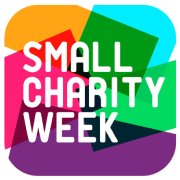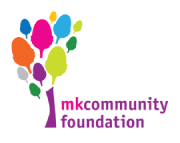You are here
- Home
- Resources
- Small Charity Week 2020
- Section 3: Leaders and Leadership
Section 3: Leaders and Leadership
This section will take around 45 minutes to work through.
The difficulties inherent in collaborations present significant leadership challenges. In our free courses we explore leadership as a concept, distinct from the characteristics and behaviours of certain individuals in hierarchical positions.
Week 1 of our course ‘Developing Leadership Practice in Voluntary Organisations’ contains the following passage about the allure of leadership:
Pulling us in through our heartstrings, leadership is an alluring and emotive idea, something that seems to appeal to us beyond our more rational training in organisational ideas and language. Leadership seduces with promises beyond the mundane, or even tangible. Perhaps leadership is as much a feeling as it is a concept: a feeling that a group with an important idea or purpose has momentum, is lifted beyond the ordinary limitations one finds in organisations and societies. Perhaps leadership is better spoken of in poetry rather than prose, as artwork rather than work of science.
It may not be possible to finally know or master leadership, but that does not mean that it is not worth the attempt. On the contrary. It is the project of pursuing leadership, not its final capture, that is of most value to voluntary organisations. There is a great energy and possibility invested by people in leadership that simply does not exist to the same extent within related but alternative organising concepts – management, strategy, influencing, networking, communicating, and so on. The boundaries and possibilities of leadership are slippery. They can also be vague at times. No sooner do you think you are close to understanding the secrets of leadership, than such answers slip away. You keep pursuing answers, however, because leadership is usually equated with something significant, something that addresses the core of what we think we are about as people and organisations. This core question of ‘who are we?’ is particularly relevant to voluntary organisations facing the challenges of contemporary society.
In the rest of this section Dr Owain Smolović Jones - one of the academics you will see in our free courses - gives us an overview of leadership. We will start by looking at the ‘traps’ of leadership as a concept before looking at the difference between leadership and leadership development through an example exercise Owain delivered at a previous CVSL conference in 2018. We’ll then hear again from Owain about how some of the concepts he covers in these videos apply to the current situation around Covid-19.
The three traps of leadership (6:28 minutes)
A Leadership Development Story’ (12:12 minutes)
In this next video Owain takes us through an example of a leadership development story, interacting with a voluntary sector audience to identify potential responses to a challenging situation.
A lot has changed since the CVSL conference in 2018 and although the impact of crisis situations was referenced in the above videos the Covid-19 pandemic has resulted in great change within the voluntary sector and beyond around the world.
In the following two videos, Owain Smolović Jones revisits some of the key themes from the 2018 CVSL conference in the context of the global pandemic.
The first is the notion of the sovereign leader, the pull of sovereignty, which seems particularly strong in moments of crisis. He unpacks the extent to which this trend has continued and intensified but also explores the ways in which notions of sovereignty can be and are contested. The second theme is the fundamental appeal and value of leadership as a concept for crisis situations.
In the final section below Owain identifies leadership as a ubiquitous and culturally salient discourse within the crisis and says that as it enjoys this status, we need to engage with it more critically and subject it to proper scrutiny and engagement.
The first video explores Sovereign Leadership in the current crisis.
‘Notions of Sovereign Leadership in the Covid-19 Pandemic’ (9:10 minutes)
You could be forgiven for thinking that leadership as a concept is fundamentally negative and of little use to us in practice, however, in the next video Owain suggests that leadership does still have a value.
‘The Power and Value of Leadership in the Covid-19 Pandemic’ (4:11 minutes)
We’ve explored leadership as a concept and suggested that it is important to consider how leadership works in organisational settings. A question remains however around how leadership works in collaborative contexts that involve multiple organisations.
We heard from Professor Siv Vangen earlier about collaborative advantage and collaborative inertia and in the next video she explores leadership in collaborative contexts, focussing on the need for both ‘facilitative’ (in the ‘positive’ spirit of collaboration) and ‘directive’ (more authoritative) forms.
‘Leadership in Collaborations’ (6:30 minutes)
We’ve covered a lot of ground in this section – don’t forget you can explore these topics more in our free courses and we offer support via ‘Learning Clubs’ – more information in the next section.
Reflection
The form below again offers you the chance to reflect on how these subjects and issues raised affect your own practice – did anything jump out that you found particularly useful? Any questions you’d like to ask for our ‘Lunch and Learn’ session? Let us know by filling in the questions.
If you’re reflecting on these issues in relation to your own practice and would some more information or support, please contact us.
Next: Section 4 will explore notions of collaborative leadership within the voluntary sector, building on the concepts we have covered so far.
Proceed to Section 4




